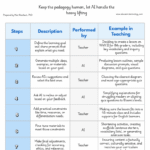AI startups are taking center stage in 2025, with new unicorns emerging and reshaping the investment landscape.
San Francisco, USA — In a remarkable shift, artificial intelligence (AI) firms are leading the charge in reaching unicorn status in 2025. This year has witnessed a surge in valuations, with several startups crossing the billion-dollar threshold, reshaping the investment landscape and sparking interest across the tech sector.
According to recent data from Crunchbase, AI startups accounted for nearly 60% of all new unicorns in the first three quarters of 2025. Notable names include OpenAI, which recently achieved a valuation of $30 billion, and Midjourney, now valued at $10 billion due to its innovative image generation technology. This trend underscores not just the viability of AI solutions but also the escalating investor confidence in this sector.


The rise of AI unicorns is not merely a reflection of technological advancement; it also highlights shifting investment strategies. Venture capitalists are increasingly directing funds towards AI-driven companies that promise scalability and transformative potential. In the first half of 2025 alone, AI startups secured over $25 billion in funding, marking a 40% increase compared to the same period in 2024. Firms like Andreessen Horowitz and Sequoia Capital are at the forefront, aggressively backing AI innovations across various applications.
However, the rapid growth of AI startups also raises questions about sustainability and ethical considerations.
However, the rapid growth of AI startups also raises questions about sustainability and ethical considerations. As these firms expand, they face scrutiny regarding data privacy, algorithmic bias, and the societal implications of their technologies. For instance, OpenAI’s ChatGPT has sparked debates over misinformation and content moderation, leading to calls for clearer regulatory frameworks. Investors are beginning to consider these factors as integral to the long-term viability of their portfolios.
Moreover, competition within the AI sector is intensifying. Established tech giants like Google and Microsoft are not just observing from the sidelines; they are actively investing in or acquiring promising AI startups. This competition drives innovation but also raises barriers for new entrants, creating a complex ecosystem where agility and adaptability become critical for success.
Looking ahead, the trajectory of AI startups suggests a continued emphasis on collaboration and integration within existing industries. Companies that can effectively combine AI with traditional business models stand to gain significant advantages. For example, healthcare startups utilizing AI for predictive analytics are already demonstrating improved patient outcomes and operational efficiencies.
As we move towards 2026, the narrative around AI will likely evolve from one of mere hype to substantive applications that impact daily life. Key sectors such as finance, healthcare, and education are expected to see transformative changes driven by AI innovations. Startups that strategically navigate these shifts, addressing ethical concerns while delivering value, will likely emerge as leaders in this burgeoning landscape.
In conclusion, the rise of AI unicorns in 2025 signals a pivotal moment in the startup ecosystem. With substantial investment flowing into this sector, the focus is shifting towards sustainable practices and ethical considerations. As we look to the future, the ability of these startups to adapt and innovate will determine their success in an increasingly competitive environment.







